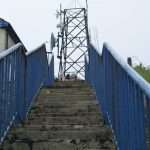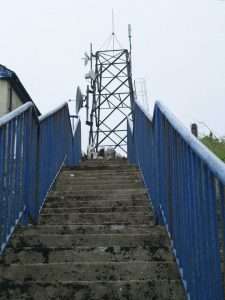Which news is fake?
There is an episode in BBC Television’s 1996 series Our Friends in the North set in 1970. Nicky, one of the four friends, has been working for a Labour Party politician but has become alienated by the corruption he encounters and instead becomes an activist within an anarchist group. A machine gun attack is launched in Whitehall and Nicky believes it will secure extensive coverage, instead there is silence, whatever newspapers might have chosen to cover the story had been silenced by D-notices from the government, demanding silence in the interests of national security.
Did such incidents ever occur? Or would such stories now be labelled “fake news” and disappear among the tales of alien abduction and paranormal happenings? How does one discern the difference between the fake and the true? Even odd stories must come from some source; perhaps someone is delusional, perhaps someone is misinterpreting the facts, perhaps someone is wilfully misrepresenting the facts, whatever the origin, there must be a starting point.
I have a vivid memory of a news report in late August 1982 that the Irish military were contemplating intervening if the general election anticipated for that autumn proved indecisive. There had already been inconclusive elections in June of 1981 and in February 1982 and the expected poll would have been the third time in which the country had voted in eighteen months. The government that summer seemed mired in controversy upon controversy and the opposition certainly perceived the election campaign they were to fight in terms of a crusade, but was there really such a story about the army? Anyone familiar with the Irish defence forces would have known that the suggestion was not credible, but, if there was such a story, from where did it come?
In my memory, the story was printed in The Observer, a British Sunday newspaper that circulates in Ireland. It would seem odd to have a clear recall of a story that never existed in the first place. How could I have imagined such a story about a country of which I knew little? Why would I have imagined a story that my college education would have said couldn’t have been? Maybe the story was no more than a piece of speculation by an English journalist who thought it fun to suggest that the Irish might have a coup, maybe it was never there, it certainly does not appear on any internet search.
Of course, a machine gun attack on Whitehall, or a planned coup in Ireland, would now be stories that became viral. Social media and discussion forums would be filled with details, which would undoubtedly multiply in the telling. Yet when we do encounter stories that run counter to the official version, what weight do we attach to them? When the Russians say there was no chemical attack in Syria, when Robert Fisk can find no evidence, do we believe them? Or do we believe an American president who would lie about such simple matters as how many people attended his inauguration? Which news is fake?



I would be far far faaaaaar more likely to credit Robert Fisk with getting nearer the truth than anything I’ve seen or read from any other source.
Here’s a little story what may or may not have historical value.
Back before we had police forces, that role, the control of peace, was a province of the lords and gentlemen of a county. Now we have a number of things alive still from those days like the Point to Point races and the Fox Hunt. Both echoes of the old militias.
Back then there were a few sources of money available to the lords and gentlemen, but few quite as filled with lolly as the report writing to the Castle in Ireland and to the Whitehall in England about the lack of peace in a county.